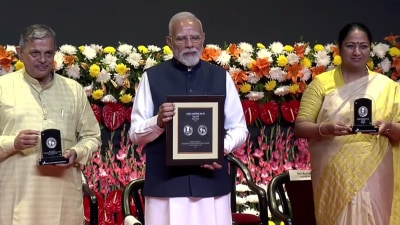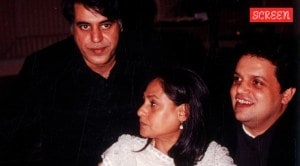Director Anurag Kashyap’s newfound desire to move out of Mumbai and work in Kerala begins to make sense when you watch Rifle Club. Kashyap plays the primary antagonist in the movie, the sort of rip-roaring genre exercise that can only emerge out of the Malayalam industry; the sort that Hindi filmmakers would’ve instantly ruined with a hastily produced song by Diljit Dosanjh. Directed by Aashiq Abu, Rifle Club is a gloriously thrilling new film that recently debuted on Netflix after a successful theatrical run. Not only does it include all the ingredients that have made Kerala the most creatively daring hub for cinema in the country, it also serves as a grand metaphor for the Malayalam industry itself.
It is an industry that has evolved tremendously in recent years, both in terms of exposure and ambition. Audiences from across our diverse nation, previously narrow-minded in their tastes, suddenly found themselves looking forward to the next Lijo Jose Pellisery film; they began grooving to Sushin Shyam’s music, and even learned to ignore their otherwise frail sentiments while watching a politically astute potboiler. Malayalam cinema has consistently produced some of the best films of the last few years, not letting the usual hurdles — budgets, mainly — get in the way of a good story.

Also read – Manjummel Boys: A thrilling blockbuster about faith that doesn’t lean on religion as a crutch
Story continues below this ad
But even though the industry’s success has broadly been celebrated, it has also inspired envy. The titular Rifle Club in the film represents this industry, while Kashyap represents the jealous rivals. Casting the iconic Bollywood filmmaker in the role of a Hindi-speaking arms dealer works on multiple levels. The arrangement is made all the more amusing when you note that the villain’s primary motivation, in a sense, is to protect his dynasty and his two nepo babies. One of them is played by the rapper Hanumankind.
 A still from the Malayalam-language film Rifle Club.
A still from the Malayalam-language film Rifle Club.
The plot, set in the year 1991, kicks into gear when a pretty boy actor named Shajahan is encouraged by his overzealous secretary to step out of his comfort zone — romantic dramas — and dabble in what his more enterprising colleagues call ‘method acting’. If he wants to survive amid new competition, he needs to evolve with the times. And so, to prepare for the role of a hunter in a new movie, Shajahan decides to visit the famous Rifle Club and learn his way around guns. The enterprising colleague who inspires this bout of insecurity is none other than Mammootty — perhaps the bravest superstar-level actor of the country.
In real life as well, Mammootty paved the way for several other Malayalam actors to embrace a more grounded form of cinema in the last decade or so. Actors like Kunchacko Boban and Fahadh Faasil earned legions of new fans after shedding the romantic hero tags that they’d been chained to, and participating in landmark genre films that have defined the Malayalam New Wave. You can almost imagine them going through some of the same doubts that Shajahan seems to be consumed by in Rifle Club’s opening scenes.
But the Rifle Club, in many ways, is like the old guard of Malayalam cinema — a close-knit community of actors, directors, producers, and technicians. Everyone knows everyone. It isn’t a family, technically. But it’s certainly an extended family. One of the most charming traits of the Malayalam industry is the overlap of talent across films, both in front of and behind the camera. For instance, is it even a Malayalam movie if Indrans doesn’t show up for a scene or two? Ditto for Joju George and Dileesh Pothan.
Story continues below this ad
Incidentally, Pothan stars in Rifle Club as Secretary Avaran — the ‘director’ of the operation. By that same logic, the club itself functions as a film set. Avaran has a loyal crew by his side, including women capable of doing more than what they’re offered. But he leads by example, defending his territory against outside influences, such as the allure of a Rs 100 crore hit, the crutch of star cameos, and the temptation to rely on remakes. These are all threats that the Malayalam industry will have to defend itself against as it grows in prominence. The higher the stakes, the less ambitious filmmakers will become. Rifle Club understands that it is crucial, at this stage, for Malayalam cinema to protect its creative integrity, and it presents this battle of wills in the form of a Western-inspired stand-off.
 Anurag Kashyap in a still from Rifle Club.
Anurag Kashyap in a still from Rifle Club.
Similar readings have been made of Christopher Nolan’s Inception, and more recently, Oppenheimer. In both films, the protagonists could be seen as archetypes for filmmakers who round up crews of phenomenally talented specialists to help them realise their visions, at any cost. Leonardo DiCaprio’s character in Inception, and Cillian Murphy’s in Oppenheimer, were stand-ins for Nolan himself. This, the filmmaker seemed to be saying, is how seriously he takes his job. In Rifle Club, director Abu doesn’t seem to have too high an opinion about other film industries — the villain and his henchmen, for instance, are a bunch of perverts.
Read more – Bramayugam: Mammootty’s miraculous run continues with the bleakest Indian horror film in years, a take-no-prisoners tirade against humanity
Inadvertently or not, the film exposes the clan-like mentality that is prevalent in Indian society, even outside show business. Entire regions are reduced to fiefdoms by ‘film families’, and there’s hardly any unity between India’s various cinema industries, regardless of how melodically one might sing “Kumbaya” at press conferences. Everybody seems to be trying to steal a slice of the other’s pie. It isn’t unusual for South movies to cast Hindi film actors as villains, nor is it uncommon to see the flavour of Tamil cinema being infused into mainstream Bollywood films. A project could work in Andhra Pradesh, but it’ll invariably be a copycat producer from Bandra who takes control of Ramoji Film City before anybody else.
Story continues below this ad
Rifle Club, for what it’s worth, is a bold display of originality. Like Ben Wheatley’s Free Fire and the Kevin Smith’s Red State — two recent movies that feature Heat-level gunfights — Rifle Club invites a deeper analysis of its themes precisely because of how lean it is. Abu peppers ideas of integrity, individuality and identity with the same excitement as one of his characters peppering another with bullets. They’ve taken way too long to get a sequel to Minnal Murali off the ground, but you’d hope that they make a Rifle Club 2 before selling the original’s remake rights to Boney Kapoor or someone.
Post Credits Scene is a column in which we dissect new releases every week, with particular focus on context, craft, and characters. Because there’s always something to fixate about once the dust has settled.




 A still from the Malayalam-language film Rifle Club.
A still from the Malayalam-language film Rifle Club. Anurag Kashyap in a still from Rifle Club.
Anurag Kashyap in a still from Rifle Club.































